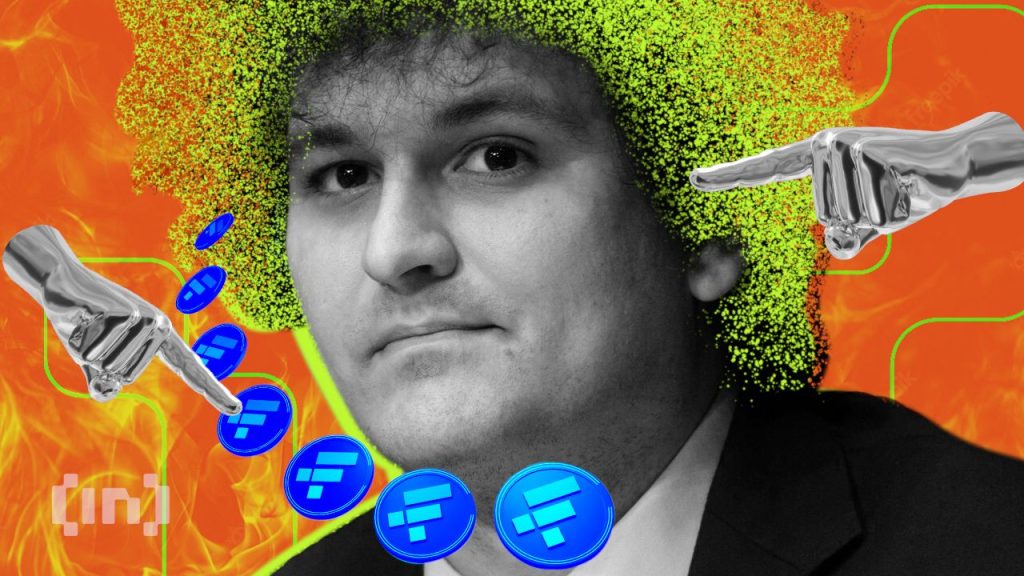Sam Bankman-Fried Ordered to Court While FTX Bankruptcy Ends

US Judge Lewis Kaplan ordered Sam Bankman-Fried (SBF) to appear in court on Feb. 21, 2024. Kaplan’s orders came after prosecutors wrote a letter to Kaplan about a potential conflict of interest in SBF’s legal representation, while, in the meantime, FTX lawyers wind up the exchange’s bankruptcy.
In an order dated Feb. 7, 2024, the judge compelled SBF to attend a Curcio hearing to discuss whether he knew about the roles of lawyers Mukasey Young LLP in his and the Celsius crypto cases.
Sam Bankman-Fried Shares Lawyers With Celsius
In a recent letter, prosecutors asked Kaplan to address SBF’s counsel representing former Celsius CEO Alex Mashinsky. Lawyers from Mukasey Young LLP, a New York-based firm, had filed notices of appearance in SBF’s and Mashinsky’s cases.
Read more: Who Is Sam Bankman-Fried (SBF), the Infamous FTX Co-Founder?
According to the prosecutors, Mashinsky had partially blamed the Celsius collapse on SBF’s actions. Court documents allege FTX’s sister crypto hedge fund, Alameda Research, failed to repay a Celsius loan. Therefore, the lawyers could end up adopting a ‘contrary position’ for each defense, prosecutors say.
“The relationship between Alameda Research and Celsius creates the potential for conflicts in several respects,” the prosecutors said.
In the hearing, the court can confirm whether SBF wants to forego his Sixth Amendment right to an attorney with no conflict of interest. A US Supreme Court decision cited in a 1988 legal journal affirms a US citizen’s right to conflict-free representation.
Last year, a 12-member jury convicted Sam Bankman-Fried on seven counts of fraud. While awaiting sentencing, the former CEO of the crypto exchange FTX is in custody in a Brooklyn jail. Mashinsky, whose crypto loan company folded before Bankman-Fried’s exchange, will go to court in September 2024.
Bankruptcy and Sentencing Could Close FTX Saga
This year, crucial loopholes in the FTX saga could be resolved. After Bankman-Fried’s sentencing trial in March, Kaplan will sentence former FTX and Alameda employees. Nishadh Singh, the former director of engineering at FTX, Gary Wang, the former CTO, and Caroline Ellison, the former CEO of Alameda Research, testified against SBF to negotiate lighter sentences.
In the meantime, the FTX bankruptcy team recently changed the estate’s status from Chapter 11 to Chapter 7. The alteration means that the company will eventually liquidate and cannot restart at the end of the legal process.
Read more: FTX Collapse Explained: How Sam Bankman-Fried’s Empire Fell
After the alteration, John Reed Stark, a former Chief of the US Securities and Exchange Commission’s Office of Internet Enforcement, said Chapter 7 was inevitable. A Chapter 11 process paid lawyers millions to arrive at what Reed Stark calls an obvious decision.
“As I predicted over a year ago, a Chapter 11 reorganization of FTX was never going to happen. Yet the FTX bankruptcy team…still insisted upon trumpeting the shameless folly that FTX could somehow triumphantly return…These [legal] fees seem a tad excessive to say the least, and a Chapter 11 plan seemed pure fantasy,” Reed argued.
BeInCrypto has reached out to a lawyer at Mukasey Law on LinkedIn for comments but has yet to hear back at publication.
Trusted
Disclaimer
In adherence to the Trust Project guidelines, BeInCrypto is committed to unbiased, transparent reporting. This news article aims to provide accurate, timely information. However, readers are advised to verify facts independently and consult with a professional before making any decisions based on this content. Please note that our Terms and Conditions, Privacy Policy, and Disclaimers have been updated.















